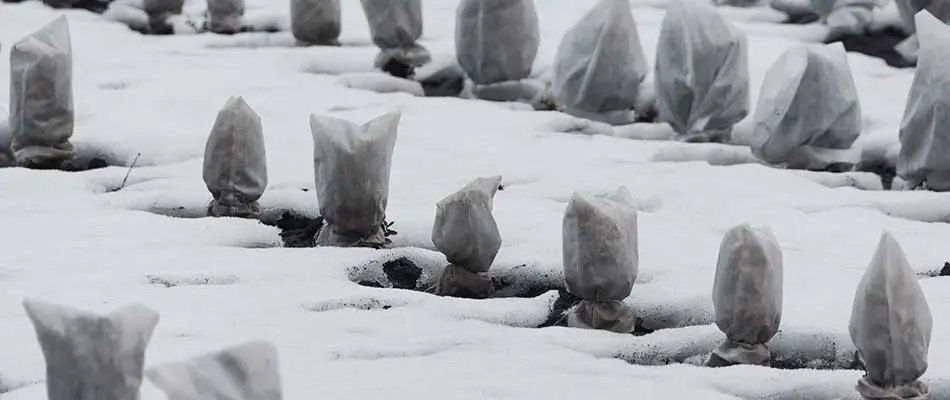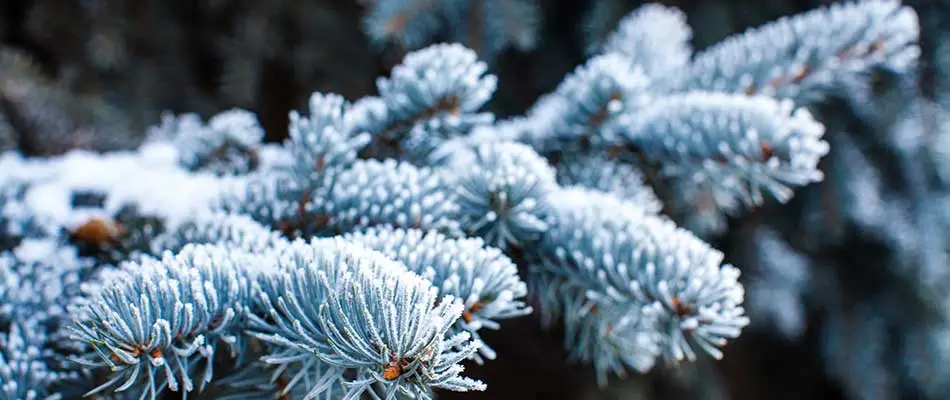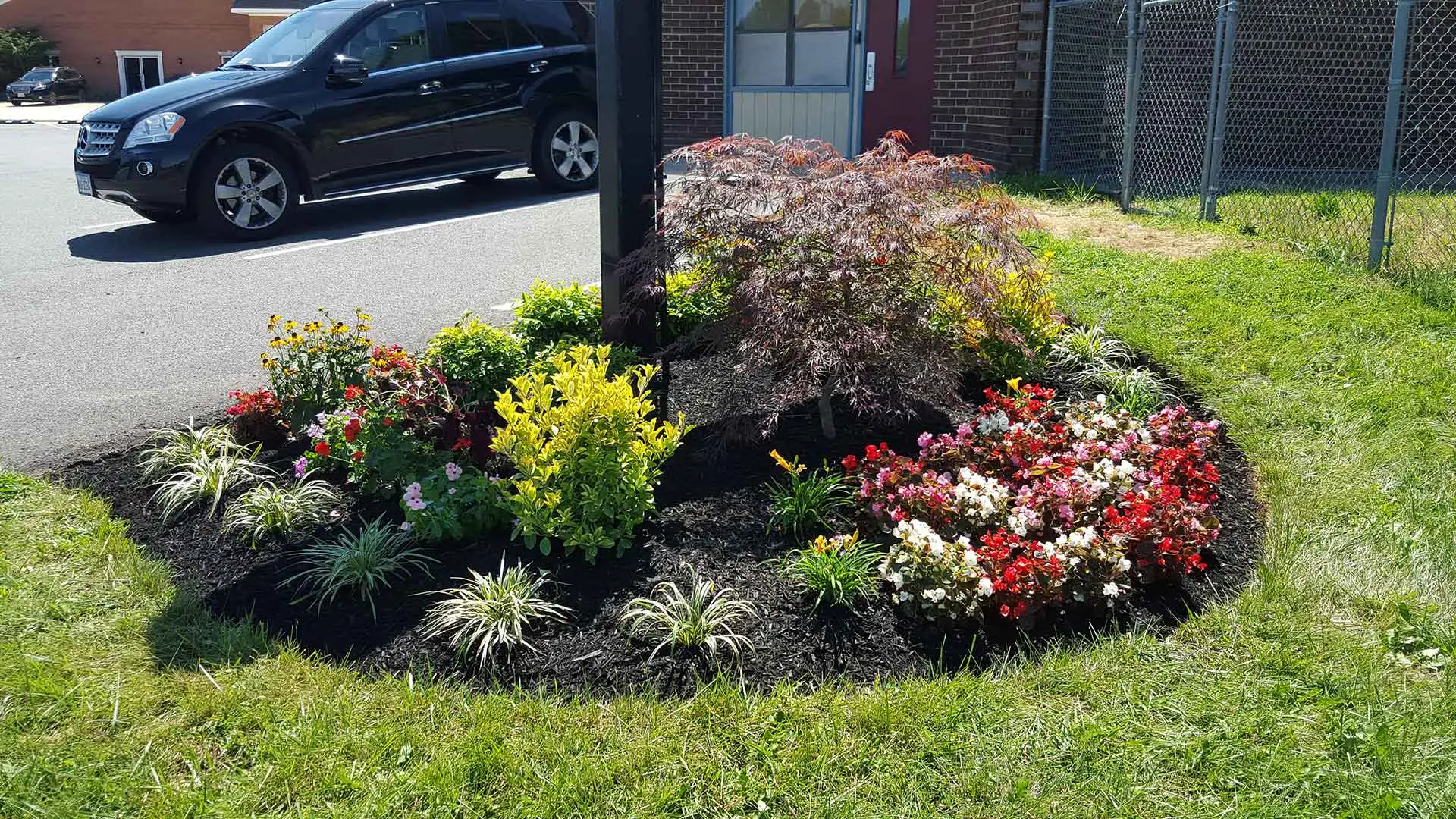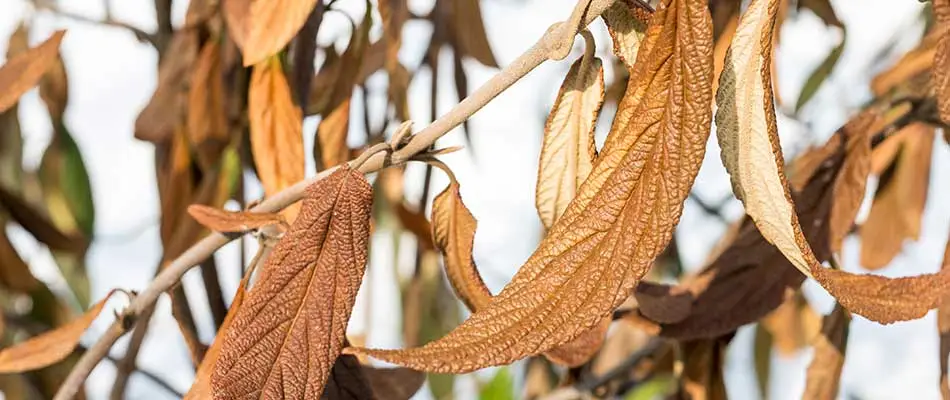Before you step outside in winter, you make sure you are bundled up and prepared for the cold—but what about your plants? Frost can harm plants and potentially kill them off, depending on how cold it gets.
Make sure your plants in Bristow, Haymarket, Manassas, and nearby areas are protected from the cold with our tips to protect plants from frostbite.
Why Frost Is Bad for Your Plants
Your plant is a living, breathing thing and when it gets too cold, internal processes such as fluid movement and photosynthesis are impeded. Ice crystals form within the cellular level and stop water flow to the rest of the plant. When a plant is damaged by frost, its leaves will turn black or dark brown after they shrivel.
Each type of plant experiences this at different temperatures. When you live in an area with a cold winter, it's important to try and plant "hardy" plants that are more resistant to freezing. "Tender" plants, such as citrus, tropical plants, bougainvillea, and more, will be injured or killed by frost unless they are dug up and brought inside to a warmer environment.
Once temperatures drop below freezing, make sure your plants are protected for the cold weather.
1. Make Sure Your Soil Is Well-Prepared
Your plant's health starts with the soil it's growing from and if the soil isn't prepared well for the upcoming cold, the plants will suffer. Your soil needs to be loose, fertile, and well-watered. If soil is compacted, it won't let off warmth to increase the temperature around your plant roots. It's also advised to keep soil insulated with the correct amount of mulch or rock ground cover. When mulch is used, it keeps soil insulated to protect plants from extreme temperature changes.
2. Cover Plants Before the Frost Hits

Using blankets, sheets, drop cloths, tarps, or any other covers you may have on hand to cover the plants will help protect them from frost. It's recommended to also use some wooden stakes so that the covering doesn't completely smother the plants. Don't try to wrap covers completely around a plant by tying it around the stem, as this will block warmer air from the soil from reaching the plant.
3. Water Plants the Night Before a Frost
This may seem counter-intuitive, but watering the night before a frost can help to raise the temperature in your soil. Doing this keeps plants warmer and less likely to suffer from the freezing temperatures. The soil will release the moisture at a warmer temperature than the air around it.
4. Install Plants in Spots that Are More Frost-Resistant

It's best to install plants in spots in your yard that will be more resistant to frost. Typically, frost collects in the lowest elevated areas of a property. Also, put plants in areas where they can be protected, such as near benches, fences, larger shrubs, and trees. The structures will protect them and the larger plants will emanate heat to help them stay warmer.
Do you need help protecting your landscaping from winter weather?
At Patriot Lawn and Landscape, we have years of experience when it comes to maintaining landscaping beds in Bristow, Haymarket, Manassas, and other areas. If you need help figuring out the best strategies to keep your plants protected from frostbite in northern Virginia, then give us a call today at (703) 244-7798 to get an estimate!



Comments (0)
Sorry! The comments have been closed.